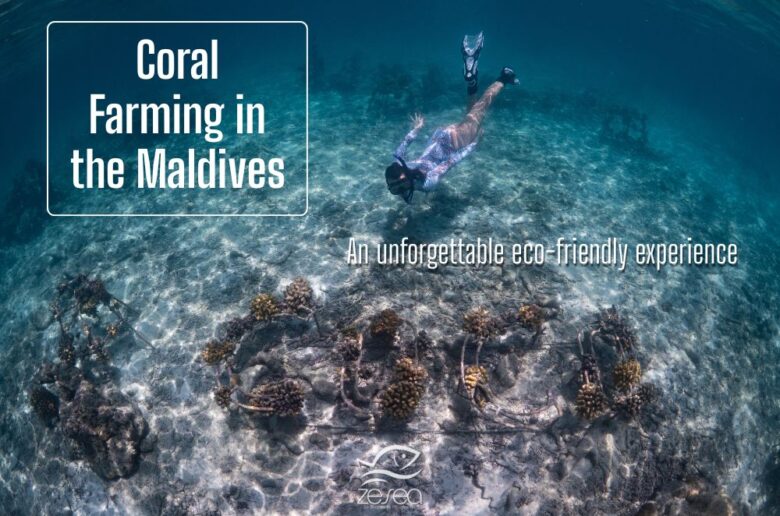Sommaire
Diving in the turquoise waters of the Maldives is already a dream in itself, but contributing to the restoration of coral reefs makes the experience totally unforgettable. On my last trip to Dhuni Kolhu island, I was lucky enough to take part with my life and adventure partner in a unique ecological activity: coral farming. A concrete initiative for the preservation of marine biodiversity, which enabled me to discover one of the facets of responsible ecotourism in the Maldives, with Coco Collection resorts.
At a time when corals are threatened by global warming, local projects are working to regenerate them using innovative techniques that are accessible even to travelers. In this story, I take you behind the scenes of a committed environmental project, combining marine discovery, awareness-raising and concrete action for the planet.
What is coral farming ?
In the face of massive coral bleaching and reef degradation, coral cuttings have become one of the most promising techniques for restoring marine ecosystems. Accessible, minimally invasive and sustainable, this method is now used in many parts of the world, including the Maldives, where reefs play a vital role in biodiversity and coastal protection.
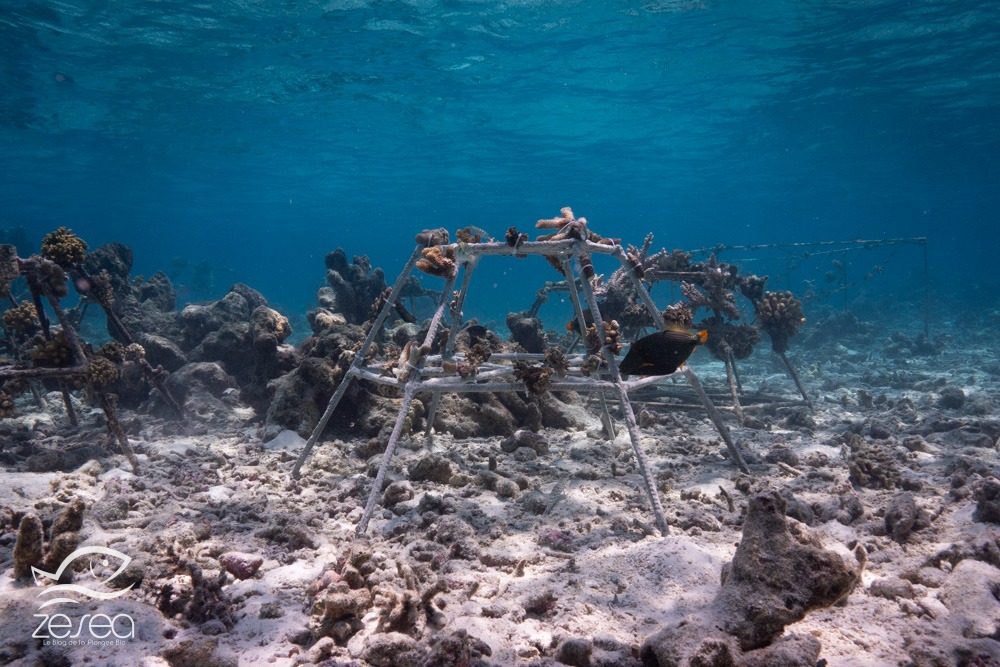
A method for restoring coral reefs
The principle of coral farming is simple: small branches of healthy coral, called “cuttings”, are taken and attached to artificial structures (often made of metal or ceramic) placed underwater. These structures support the corals, which gradually grow until they can be replanted on damaged reefs, or left in place to form a new reef.
This technique is inspired by terrestrial gardening, but adapted to the marine environment. It enables rapid multiplication of coral colonies while preserving the original strains.
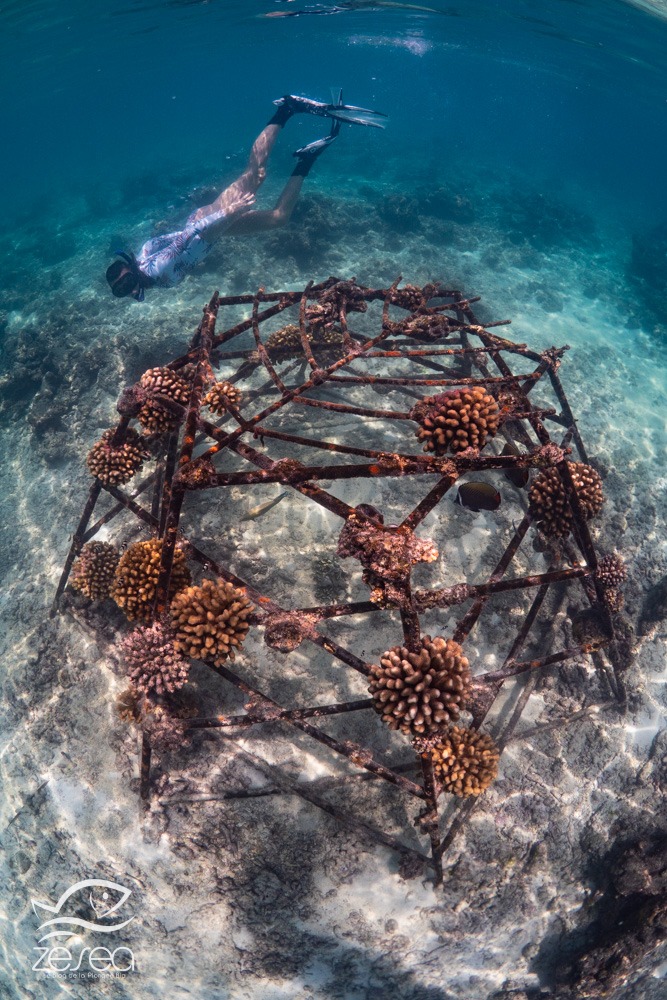
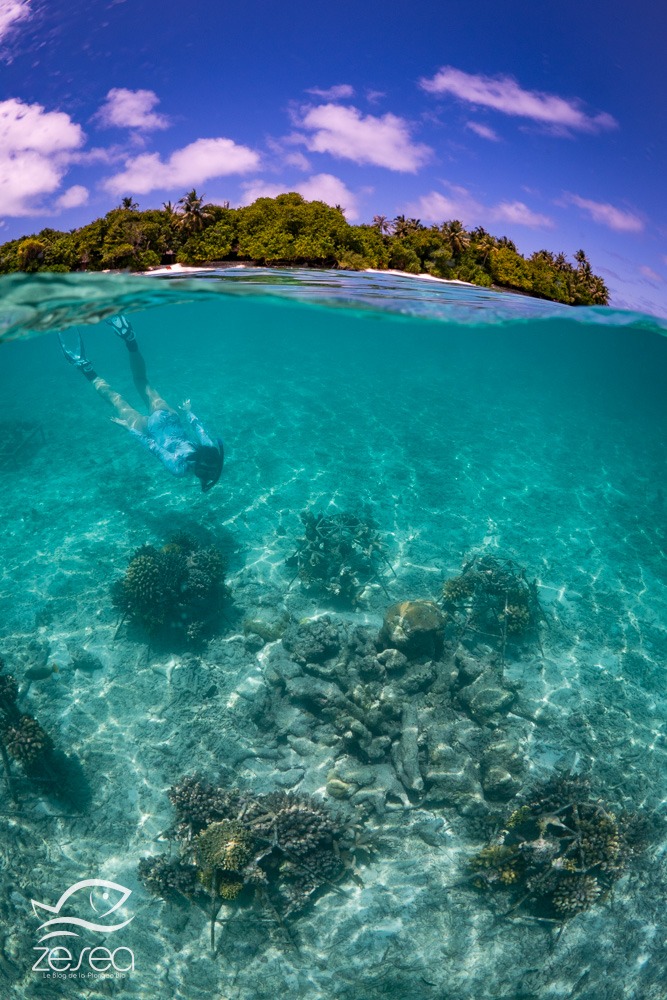
How does underwater farming work?
Once the cuttings have been selected (the easiest way is to find pieces of coral that have been naturally broken for a short time, in a lagoon, and are therefore still alive), they are carefully attached to supports called “coral nurseries”, submerged at a shallow depth. These underwater nurseries are regularly monitored by marine biologists to ensure the good health of the corals. After several months of growth, they develop their calcareous skeleton and can be transplanted to degraded areas to re-form living reefs.
Who organizes these projects in the Maldives?
Many eco-responsible hotels, diving centers and NGOs in the Maldives are collaborating to set up cuttings programs accessible to tourists. These initiatives not only raise travelers’ awareness of the need to protect the oceans, but also finance concrete actions to restore coral reefs.
Some resorts, for example, are integrating cuttings sessions directly into their sustainable holiday offers, accompanied by scientific explanations, educational workshops and even personalized monitoring of the planted corals. This is particularly true of the Coco Collection hotels (Coco Palm Dhuni Kolhu on Baa Atoll, and Coco Palm Bodu Hithi on Male North Atoll), which offer their guests a complete coral cutting experience led by a marine biologist (price = $100 for a standard structure with your name on a small plaque, photos and follow-up sent by email every 6 months for 2 years).
Our coral farming experience on Dhuni Kolhu island in the Maldives
During the first stay of our collaboration on a photographic project with Coco Collection, we had the pleasure of discovering the coral farming experience offered by Rosie, the Coco Palm Dhuni Kolhu resort’s resident marine biologist. And it was with great excitement that I prepared myself for this ecological activity, which has interested me for many years now and which, as a marine biologist, was missing from my various experiences.
At my side, Karolina, a psychology graduate who has always been passionate about marine life, shares her personal experience :
“Would you like to do some coral farming later?”
When Antho asked me, I said yes, a little reflexively, a little shyly too, without really knowing what it would entail. In my head, I imagined a fairly basic activity: freedive, hang a small piece of coral somewhere underwater, and that was it. A sort of simple, symbolic and quickly executed mini gesture. And to be honest, at the time, I was more tempted by snorkeling with the turtles I knew were swimming just a few meters from where we were than by this occupation. But curiosity got the better of me. And happily so !
We arrive a little later on the beach, just in front of our bungalow number 66. Rosie, the island’s biologist, is waiting for us with a big smile. Under a tree, she sets up a bucket filled with seawater and fragments of naturally broken coral freshly collected from the lagoon, as well as a metal structure that will serve as the base for our future reef. Then she hands us each a pair of gloves. At that moment, I realize that everything is going to happen here, on dry land, in the shade, in a postcard setting and exclusively. Three people united around a marine life project. What an opportunity !
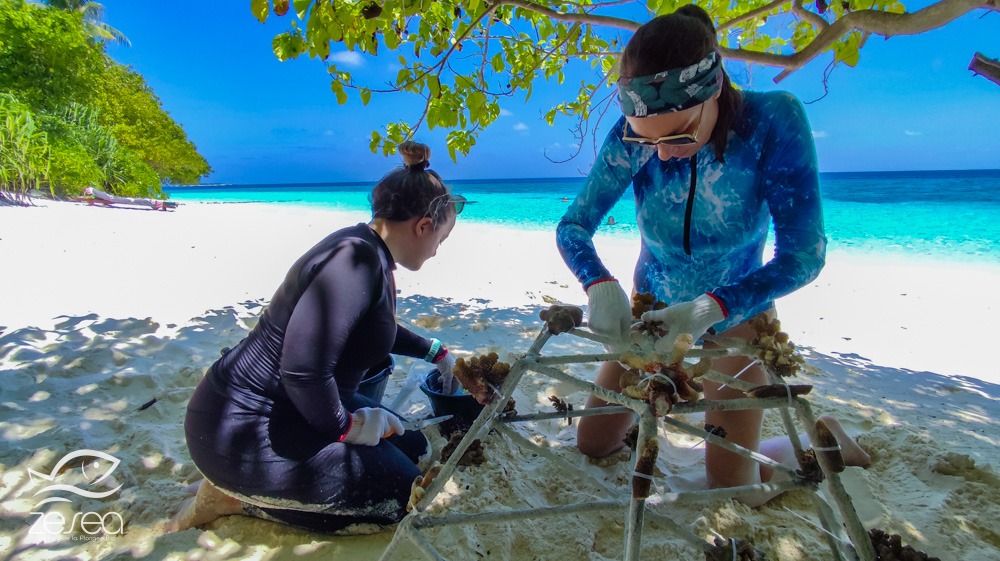
I can feel the emotion rising and I let out a “Ah, that’s so cool ! I hadn’t realized it was done this way !” of pure joy. We listen attentively as Rosie explains the gestures, the reasons why they’re done this way and that, the species, etc. I’m fascinated. I love learning, especially like this, by doing. Time seems to stand still. Between two coral attachments, we take photos to immortalize this very special moment.
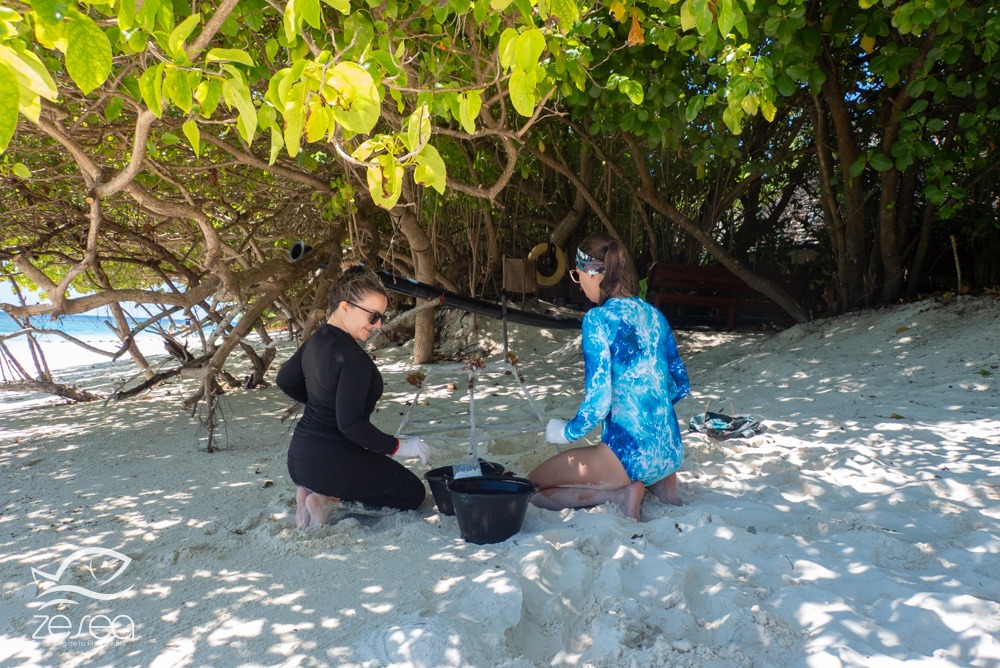
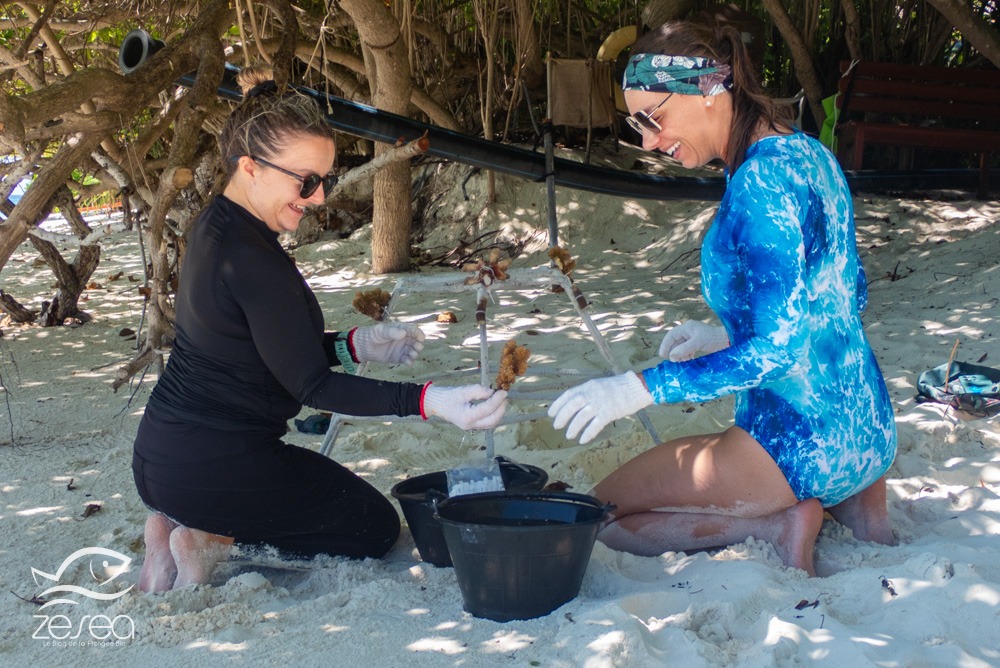
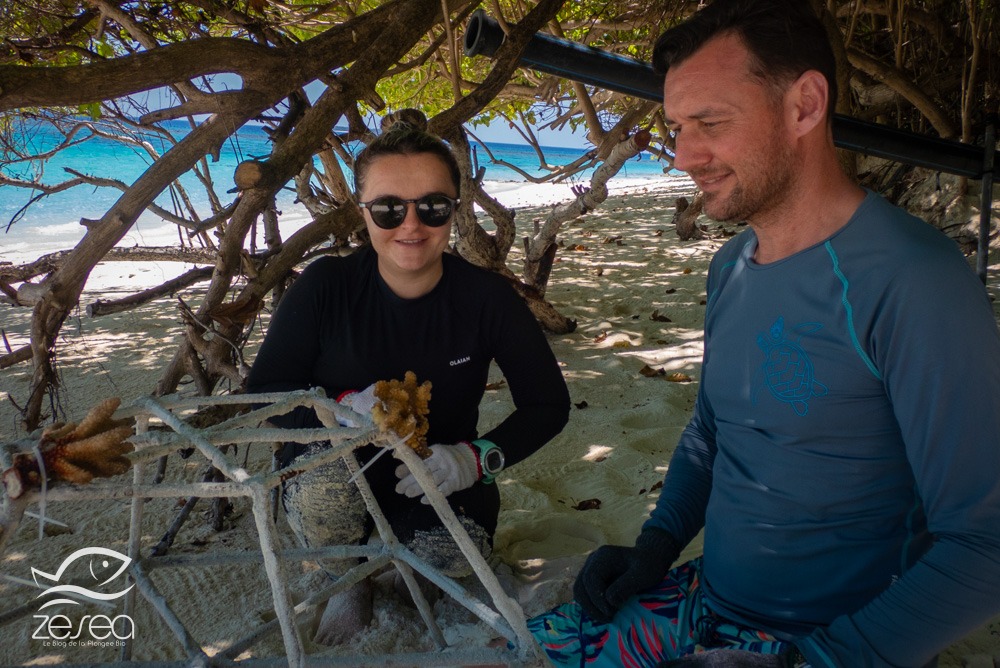
Then it’s time to get in the water. Gloves off, smile on face, mask, fins and snorkel on, we slowly make our way to the underwater “nursery”, reef in hand. Ours! Swimming like this with our little creation in our hands is an almost solemn moment. I feel like I’m accompanying, as an actress but also as a witness, something precious, fragile but indispensable and, I hope, full of future.
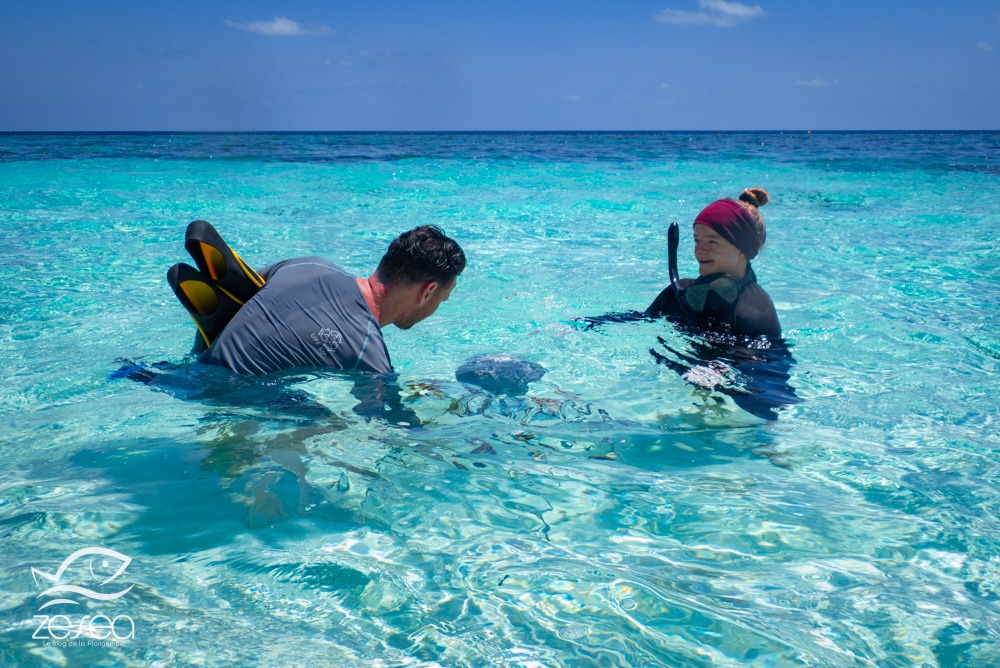
Barely settled on the seabed, our little reef is already attracting a few curious fish, as if to welcome it and tell us they’ll take good care of it. Triggerfish, wrasses and other surgeonfish swirl around our structure !
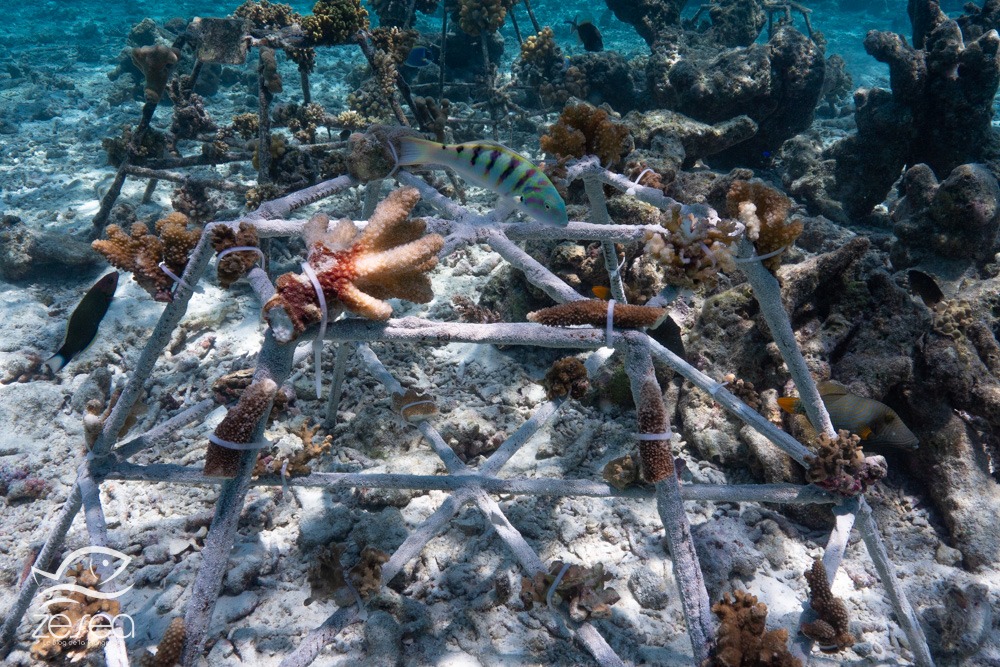
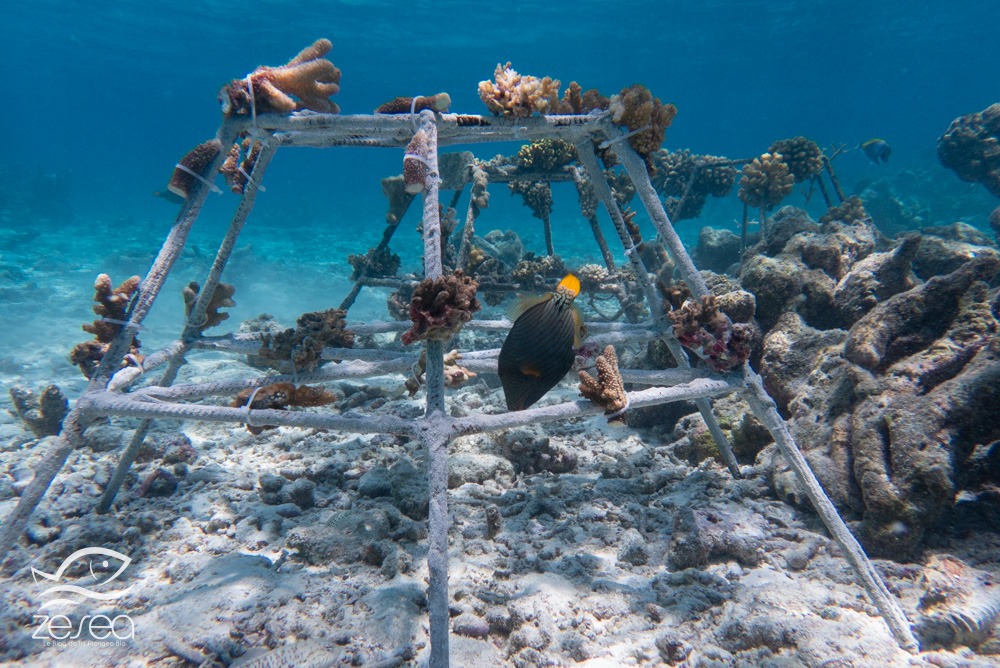
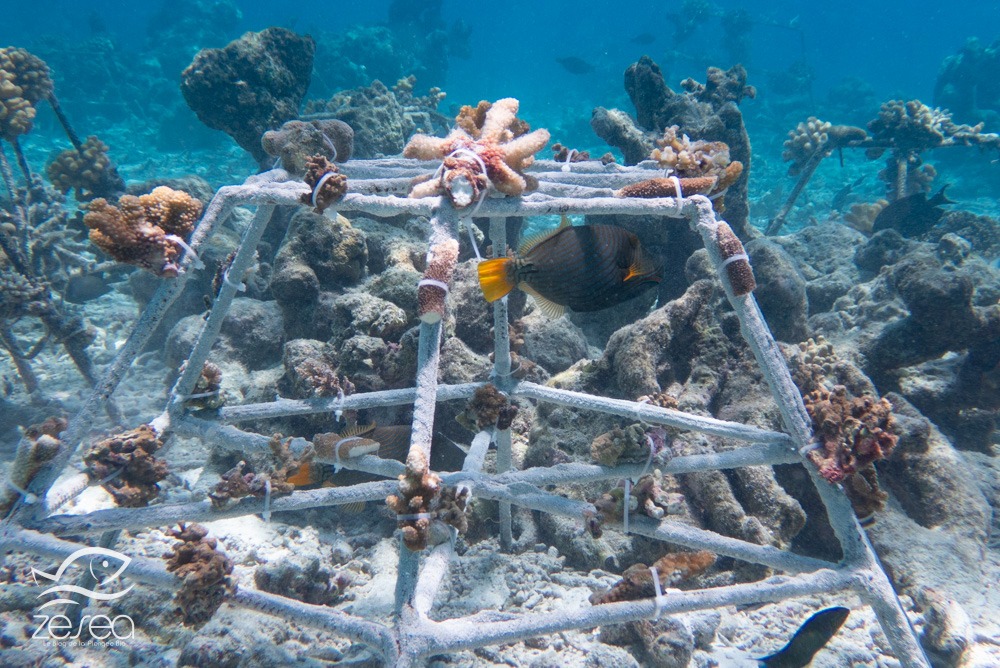
Rosie assures us that she’ll be checking on our cuttings regularly. Maybe one day they’ll become a refuge for other species, helping to restore a wounded ecosystem, that’s all I hope.
When I get out of the water, I feel strangely fulfilled. A long time ago, I had dreamed of becoming a marine biologist, before realizing that mathematical equations and scientific branches would not be on my side during my schooling… But here, for a moment, I could taste a fragment of it. And it was deeply satisfying.
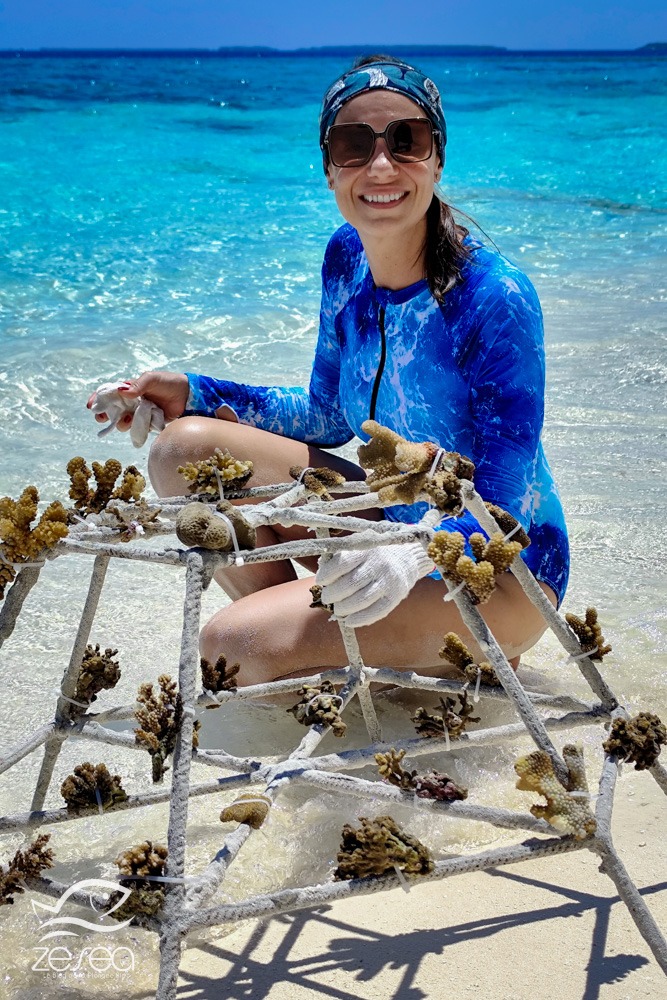
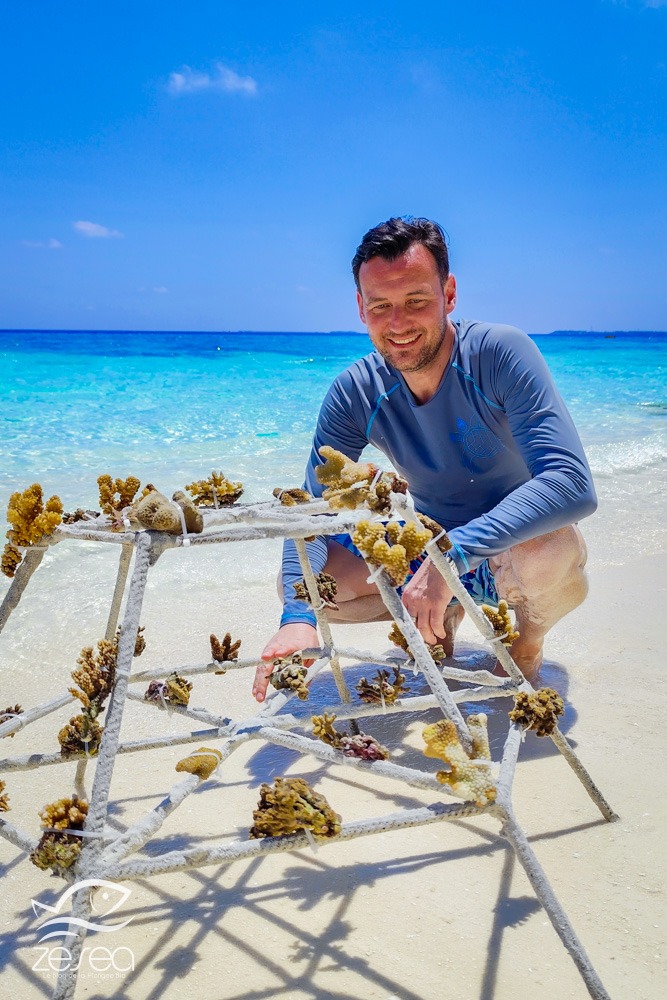
I’m already looking forward to September. To come back and find out if our baby corals have grown, what a wonderful prospect !
Why take part in this eco-responsible travel experience?
To travel is to discover the world… but also to preserve it. At a time when marine ecosystems are under threat, an eco-responsible experience like coral farming gives a whole new meaning to adventure. This type of activity is not just about observation: it’s about taking concrete action for the planet, while enriching your trip with a profound commitment.
Travelling differently: sustainable tourism in action
Sustainable tourism aims to minimize the negative impact of travelers on the environment, while promoting local initiatives. By taking part in a coral project, you become part of this dynamic : instead of being a simple spectator, you become an actor in the protection of the oceans. In the Maldives, where tourism is omnipresent, these actions contribute to a balance between discovery and preservation.
Make a positive impact while discovering the world
Replanting coral is more than a symbol. It’s a measurable act that contributes to the regeneration of reefs, home to thousands of marine species. As a traveler, you come away from this experience with a new ecological awareness… and often, the desire to continue to act, even after your return. These moments leave their mark, awaken and empower.
In short, taking part in a coral farming activity in the Maldives gives meaning to the way you travel. A simple tropical getaway becomes a committed experience, combining wonder, learning and making a concrete contribution to the preservation of nature. By planting a small fragment of coral, it’s easy to see how every gesture counts, even on an individual scale. Far from being a trivial activity, this kind of initiative gives meaning to the trip and offers an authentic connection with the marine environment. Not to mention the pride of having participated, in your own small way, in the restoration of a coral reef. What if tomorrow’s tourism could rhyme with conscience, respect and commitment ?

